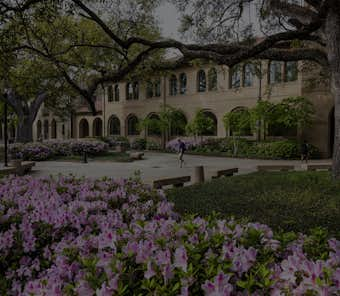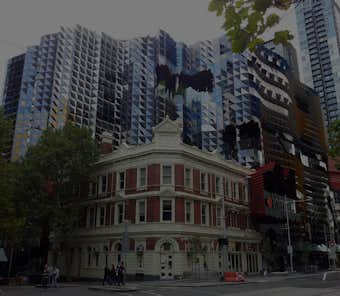
Study textiles abroad
Find programs that match your eligibility and aspirations then apply with reduced application fees, a free assessment and access to a dedicated advisor.
Find your perfect textiles programs abroad
Find textiles programs you love that match your needs & aspirations, where you stand a high chance of acceptance.
Textiles degrees abroad
Textiles degrees stitch together practical design modules and theoretical courses, equipping students with the tools they’ll need to stand out in this dynamic global industry.
You’ll explore various textile techniques, from printing and knitting to weaving and embroidery. Alongside developing your skills in drawing and digital design, you’ll learn how to predict market trends and meet client briefs.
By earning your degree abroad, you’ll encounter new textile processes, discover new fashions, and learn from international experts. These experiences will spark your creativity and help you to produce original work that meets today’s consumer demand.

Why use Studee?
-
Find your ideal program
Filter 10,000s of programs down to a shortlist perfect for you, where you have a strong chance of getting admitted
-
Apply online via Studee
Complete our application form and enjoy reduced application fees and access to unique Studee scholarships for many universities
-
We assess within 48hrs
We complete an 85-point assessment within 2 business days, help you with improvements then submit to your university
-
University offer in 2-4 weeks
We chase the university for your admission decision and keep you updated. We all celebrate your admission!
All our services are 100% free as we're funded by universities. You pay deposits and tuition fees directly to the university.

Textiles program structure
It’s possible to study textiles at the associate, bachelor’s, master’s, and doctorate levels. Associate degrees introduce students to the theoretical and practical aspects of the field. They normally require two years of study and are a useful route into entry-level employment or continued study on a bachelor’s program.
Studying a BA in textiles is the most popular option amongst students. Although most bachelor’s programs are studied over a minimum period of three years, some will include an additional industry placement year where students can gather crucial experience and build professional connections.
International students studying in the US will follow the liberal arts model and declare textiles as their major. In this system, you take general education classes for the first two years of your degree, before concentrating on major-specific modules for the remaining half.
Students with a BA can enroll in a research-based postgraduate program. A master’s degree usually takes one year of full-time study, whereas a PhD can take between four and seven years to finish.
You’ll be taught through a combination of lectures, seminars, and tutorials, and practical workshops. Depending on the modules you select, assessment methods will include exams, essays, presentations, and portfolio submissions.
Textiles is a flexible discipline with plenty of elective modules to choose from, so tailoring your degree to suit your interests is easy. Nevertheless, most courses will deliver classes on these core subjects:
- Design theory
- Drawing
- Textile processes and exploration
- Contemporary art and design
- Design history
- Material culture and mass consumption
- Research methods
- Marketing and innovation
Best countries to study textiles
Textiles study abroad programs
Textiles undergraduate programs
Bachelor's in textiles
-
Textiles, Apparel & Merchandising: Apparel Design - BS Louisiana State University, USA
- Program type
- Bachelor's
- Duration
- 4 years
- Annual tuition fee
-
28,700 USD
Fees are displayed in the university's local currency
- Start date
- September, January
-
Apparel, Textiles and Merchandising - BSc Central Washington University, USA
- Program type
- Bachelor's
- Duration
- 4 years
- Annual tuition fee
-
23,880 USD
Fees are displayed in the university's local currency
- Start date
- September, January
-
Art: Textiles: Tempe Campus - BFA Arizona State University (in partnership with Kaplan International), USA
- Program type
- Bachelor's
- Duration
- 4 years
- Annual tuition fee
-
32,760 USD
Fees are displayed in the university's local currency
- Start date
- August, January
-
Fashion and Textiles - BA (Hons) Buckinghamshire New University, UK
- Program type
- Bachelor's
- Duration
- 3 years
- Annual tuition fee
-
15,150 GBP
Fees are displayed in the university's local currency
- Start date
- September
-
BA (Hons) Textiles - BA (Hons) Arts University Bournemouth, UK
- Program type
- Bachelor's
- Duration
- 3 years
- Annual tuition fee
-
18,950 GBP
Fees are displayed in the university's local currency
- Start date
- October, February
Textiles graduate programs
Master's in textiles
-
Fashion and Textiles - MA University of Portsmouth, UK
- Program type
- Master's
- Duration
- 2 years
- Annual tuition fee
-
7,750 GBP
Fees are displayed in the university's local currency
- Start date
- September
-
Fashion and Textiles - MDes RMIT University, Australia
- Program type
- Master's
- Duration
- 2 years
- Annual tuition fee
-
34,560 AUD
Fees are displayed in the university's local currency
- Start date
- July, February
-

Textiles and Clothing Human Ecology - MSc University of Alberta, Canada
- Program type
- Master's
- Duration
- 2 years
- Annual tuition fee
-
11,410 CAD
Fees are displayed in the university's local currency
- Start date
- January, September
Doctorate in textiles
-
Fashion and Textiles - PhD RMIT University, Australia
- Program type
- Doctorate
- Duration
- 4 years
- Annual tuition fee
-
34,560 AUD
Fees are displayed in the university's local currency
- Start date
- July, February
Future textiles careers
As a textiles graduate, your creative flair and presentation skills will be highly attractive to employers across a number of sectors.
Graduates go on to land a range of exciting roles, including:
- Textile designer
- Fashion designer
- Textile technologist
- Color technologist
- Interior designer
- Printmaker
- Stylist
- Secondary school teacher
Companies are always keen to recruit individuals who can demonstrate their enthusiasm, commitment, and passion. Therefore, it’s worth trying to find some extra work experience or an internship. Your university’s career service will be able to support you with this.



















